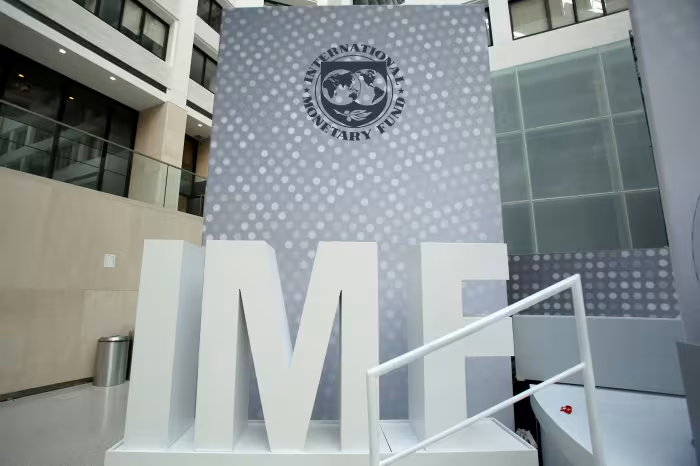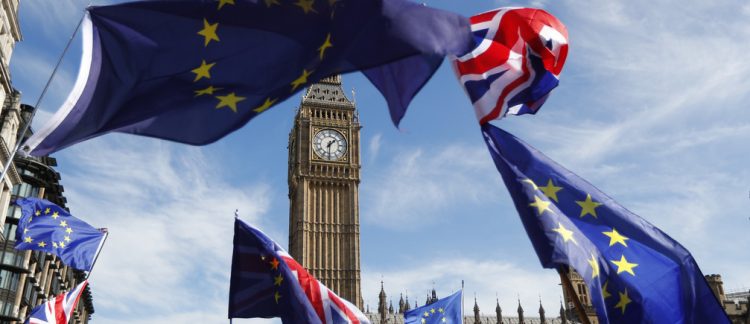The United Kingdom’s departure from the European Union—commonly referred to as “Brexit”—marked a historic and transformative shift in European and global geopolitics. The formal exit of the UK from the EU on January 31, 2020, set the stage for a redefined relationship between the two entities. As the UK and EU navigate this post-Brexit era, the future of their economic cooperation is a topic of paramount importance, not only for the UK and EU member states but also for the broader global economy.
Brexit, with its complexities and uncertainties, has reshaped the economic dynamics between the UK and the EU. From trade deals and regulations to the movement of labor and capital, the separation has led to new challenges and opportunities. This article explores the economic cooperation prospects between the UK and Europe in the post-Brexit era, examining the potential for collaboration in various sectors, the challenges they face, and the evolving economic relationship.
1. The Brexit Fallout: How the UK and EU Economy Have Been Affected
Before analyzing the future prospects of UK-EU economic cooperation, it is essential to understand the key consequences of Brexit, which have had significant economic implications for both parties.
1.1. Trade and Customs Barriers
One of the most immediate and visible consequences of Brexit has been the introduction of new trade and customs barriers between the UK and the EU. With the UK no longer being part of the EU’s single market and customs union, the movement of goods between the two entities has been subjected to customs checks, tariffs, and regulatory divergences.
While the EU-UK Trade and Cooperation Agreement (TCA) signed in December 2020 provides for tariff-free and quota-free trade on goods, it is far from seamless. The trade relationship has been burdened by increased paperwork, customs delays, and new non-tariff barriers. These factors have increased the cost of doing business between the UK and EU and have disrupted supply chains in both directions.
1.2. Labor Mobility
Brexit has also ended the free movement of labor between the UK and EU. This has had a profound effect on industries in both regions that have historically relied on workers from each other. The UK, in particular, has experienced labor shortages in sectors such as agriculture, healthcare, construction, and hospitality, which heavily depended on EU workers.
The introduction of a points-based immigration system by the UK government has limited the number of EU nationals able to work in the UK, which has exacerbated labor shortages and led to increased wages in certain sectors. Meanwhile, EU countries have seen a reduction in the flow of workers from the UK, impacting industries like finance and technology that had relied on UK talent.
1.3. Financial Services
The UK’s financial sector, particularly London’s role as a global financial hub, has faced challenges post-Brexit. With the UK no longer a part of the EU’s financial services framework, financial firms in the UK no longer have passporting rights that allowed them to operate freely across the EU. This has led many financial institutions to move parts of their operations to EU cities like Frankfurt, Paris, and Amsterdam to retain access to the EU market.
While the UK remains a major global financial center, its separation from the EU’s financial services market has complicated the ability of financial institutions to do business across the region. Regulatory divergence between the UK and EU in financial services is expected to grow over time, with potential implications for market access, investment, and innovation.
2. Opportunities for Future Economic Cooperation
Despite the challenges brought by Brexit, there are still ample opportunities for economic cooperation between the UK and the EU. Both entities share mutual interests in maintaining strong economic ties and ensuring that their economies remain competitive on the global stage. Below are some key areas where the UK and EU may continue to collaborate effectively:
2.1. Trade and Investment
While the UK and EU are no longer in a customs union, their trade relationship remains substantial. The EU is the UK’s largest trading partner, and the UK is the EU’s third-largest trading partner. Even after Brexit, both parties have an interest in maintaining and enhancing this relationship.
- Trade Deals and Agreements: The UK and EU have already signed the Trade and Cooperation Agreement (TCA), which provides the foundation for future trade relations. However, both sides are likely to explore additional trade agreements in areas such as services, digital trade, and green technologies. The UK, having regained the ability to negotiate independent trade deals, may seek to expand its global trade network, but it will also continue to prioritize its relationship with the EU due to the proximity and volume of trade between them.
- Cross-Border Investment: Investment flows between the UK and the EU remain strong, and both sides continue to benefit from mutual investments. UK companies have significant investments in EU countries, and vice versa. As both the UK and EU recover from the economic impact of the COVID-19 pandemic, there is an opportunity to enhance investment cooperation, particularly in infrastructure, technology, and green energy sectors.
2.2. Technology and Innovation
The UK and EU have long been key players in the global technology sector, with thriving tech ecosystems in cities like London, Berlin, and Dublin. Post-Brexit, there is an opportunity to further cooperate in technological innovation and development, especially in the areas of artificial intelligence (AI), fintech, and cybersecurity.
- Digital Trade and Services: The UK and EU can work on establishing frameworks for digital trade, ensuring the free flow of data and services. The digital economy has become increasingly important in the post-pandemic world, and regulatory alignment in areas such as data protection and e-commerce could facilitate stronger economic ties.
- Research and Development (R&D): Collaboration on research and development remains a crucial area for both sides. The UK and EU have historically been partners in scientific research, and there is potential to enhance joint efforts in fields such as health, energy, and climate change. The UK’s participation in Horizon Europe, the EU’s flagship R&D program, could be a key aspect of future collaboration, although this has been complicated by Brexit-related negotiations.
2.3. Green and Sustainable Development
Sustainability is an area where the UK and the EU can align their goals and work together for mutual benefit. Both the UK and EU have committed to ambitious climate targets, including achieving net-zero carbon emissions by 2050. Cooperation in clean energy, green technologies, and sustainable practices could be a promising area of economic collaboration.
- Energy Cooperation: The UK and EU are interconnected through energy grids and are natural partners in the transition to cleaner energy sources. Joint initiatives in offshore wind energy, carbon capture and storage (CCS), and green hydrogen could foster economic growth while helping both parties meet their climate goals.
- Circular Economy: The UK and EU can cooperate on developing circular economy models, which focus on reusing and recycling resources, reducing waste, and creating sustainable supply chains. This could be particularly relevant for industries like manufacturing, electronics, and construction, where sustainability practices can reduce costs and create new economic opportunities.
2.4. Tourism and Cultural Exchanges
The tourism industry, which has been a major contributor to the economies of both the UK and the EU, also holds promise for post-Brexit cooperation. Although the end of freedom of movement has made travel between the UK and the EU more cumbersome, both regions remain highly attractive destinations for tourists.
- Cultural Collaboration: The UK and EU have a long history of cultural exchange, from the arts and media to education and research. The UK’s departure from the Erasmus program was a significant change, but both sides have expressed interest in finding ways to maintain educational and cultural collaborations. Joint initiatives in art exhibitions, film production, and academic partnerships can help bridge the gap left by Brexit.
- Tourism and Transport: The post-Brexit travel landscape is evolving, but opportunities remain to cooperate on issues such as travel standards, transport infrastructure, and promoting tourism. The UK and EU can work together to make cross-border travel easier and encourage tourism by ensuring smooth operations at border crossings and enhancing joint marketing efforts.

3. Challenges to Future Economic Cooperation
While there are many areas of potential cooperation, several challenges remain that could hinder the development of a strong economic relationship between the UK and the EU:
3.1. Regulatory Divergence
As the UK is no longer bound by EU regulations, the two parties are likely to face increasing regulatory divergence over time. Differences in standards and regulations—particularly in areas like product safety, environmental rules, and data protection—could create obstacles to smooth trade and economic integration.
3.2. Political Tensions
Brexit has highlighted political divisions both within the UK and between the UK and the EU. Ongoing disagreements on issues such as the Northern Ireland Protocol and fishing rights have created tensions. Political instability, whether in the UK or within the EU, could complicate efforts to enhance economic cooperation.
3.3. Global Competition
Both the UK and the EU are competing in a globalized economy that is increasingly influenced by emerging markets, technological advancements, and geopolitical shifts. Cooperation between the UK and EU will need to take into account the rise of other global powers and ensure that both parties remain competitive on the global stage.
4. Conclusion: A Complex Yet Promising Future
The economic cooperation prospects between the UK and the EU post-Brexit are complex, shaped by a variety of challenges and opportunities. While the disruption caused by Brexit has undoubtedly created barriers to trade, investment, and movement, both sides have a strong mutual interest in maintaining a robust economic relationship.
In the coming years, the UK and EU will need to carefully navigate the evolving landscape of their economic relationship. By focusing on key areas of mutual benefit—such as trade, technology, green energy, and cultural exchange—they can build a future of cooperation that serves the interests of both sides while adapting to the new realities of a post-Brexit world. The journey may be challenging, but the potential for economic collaboration remains strong.


































